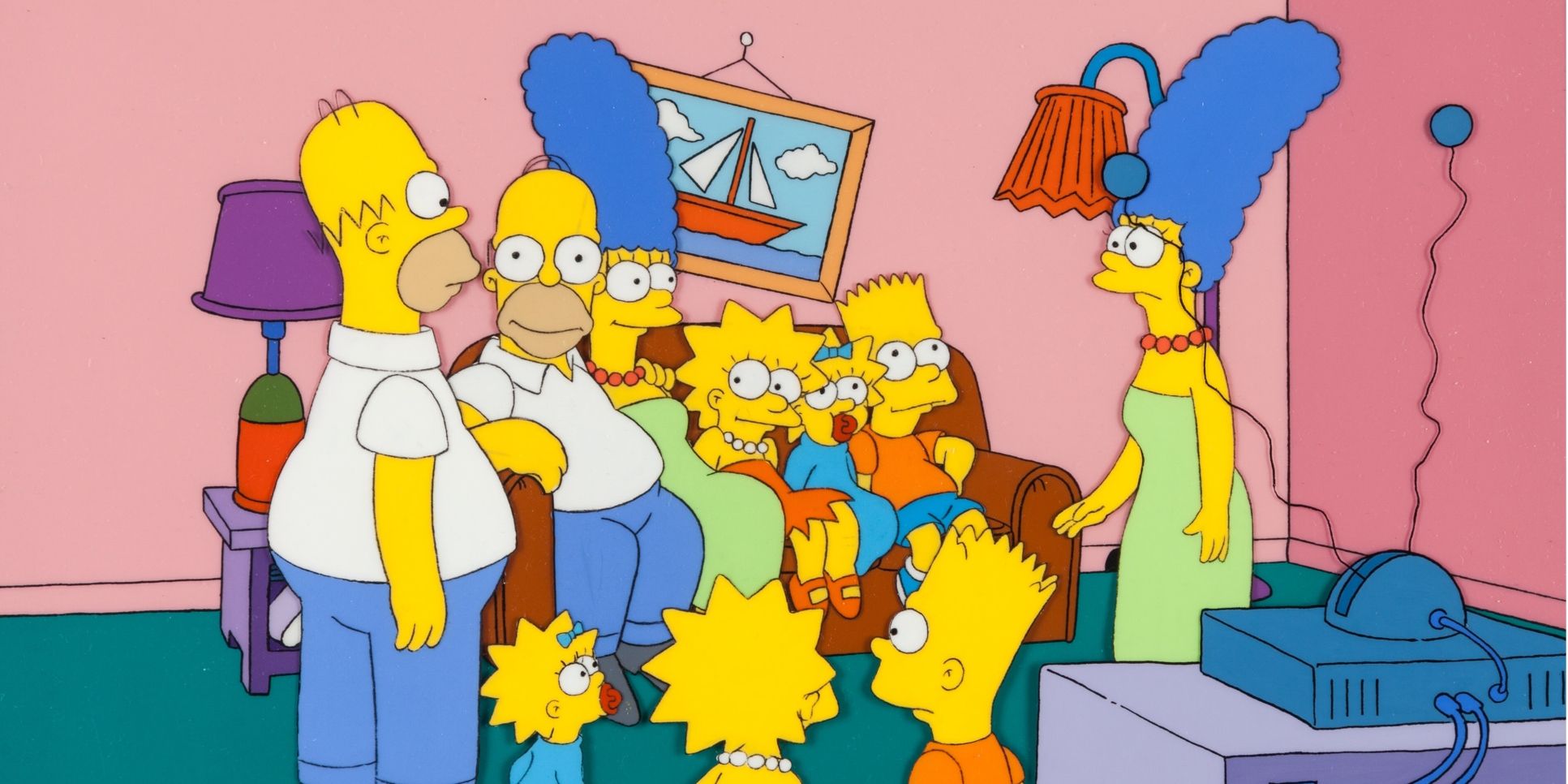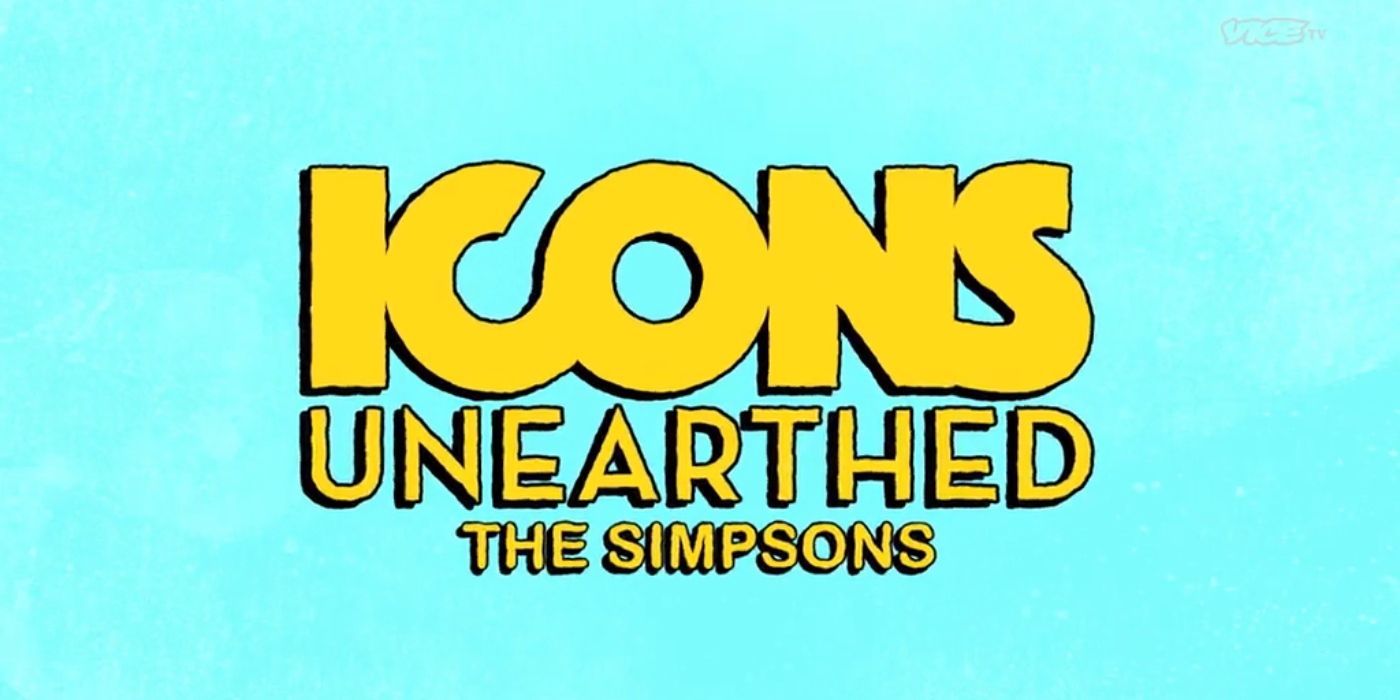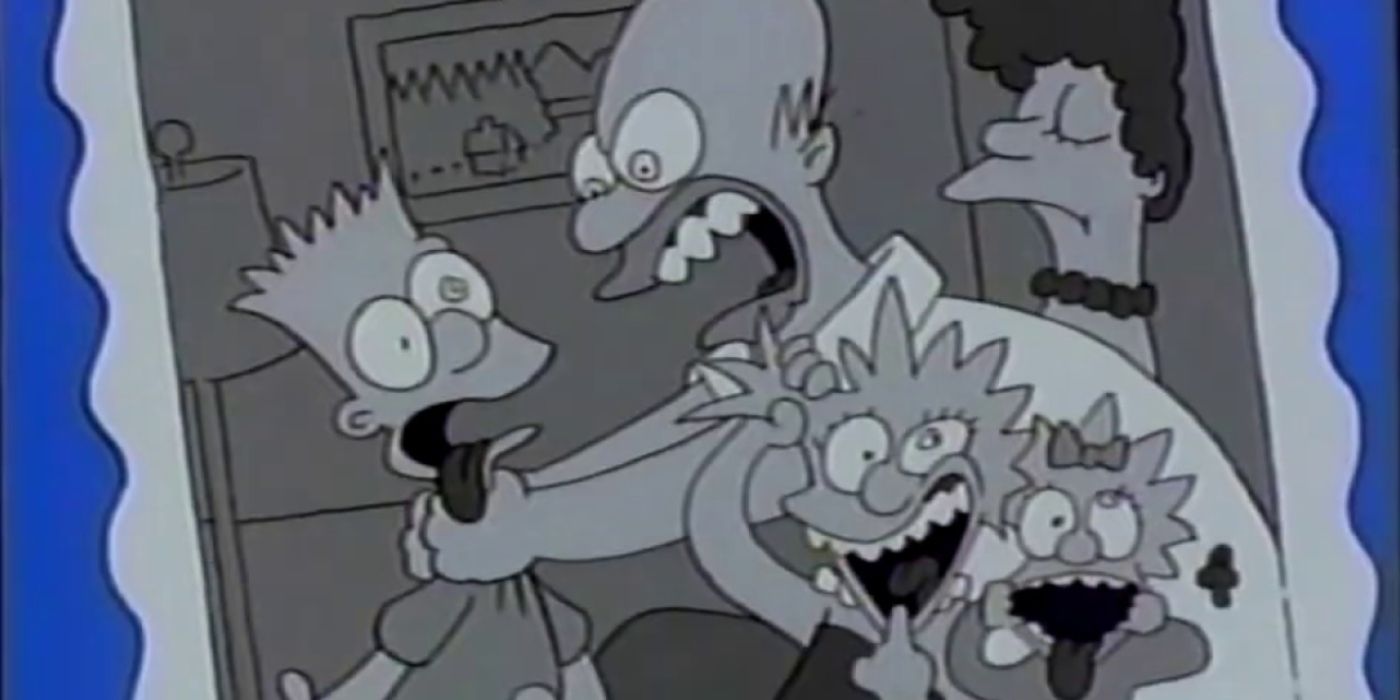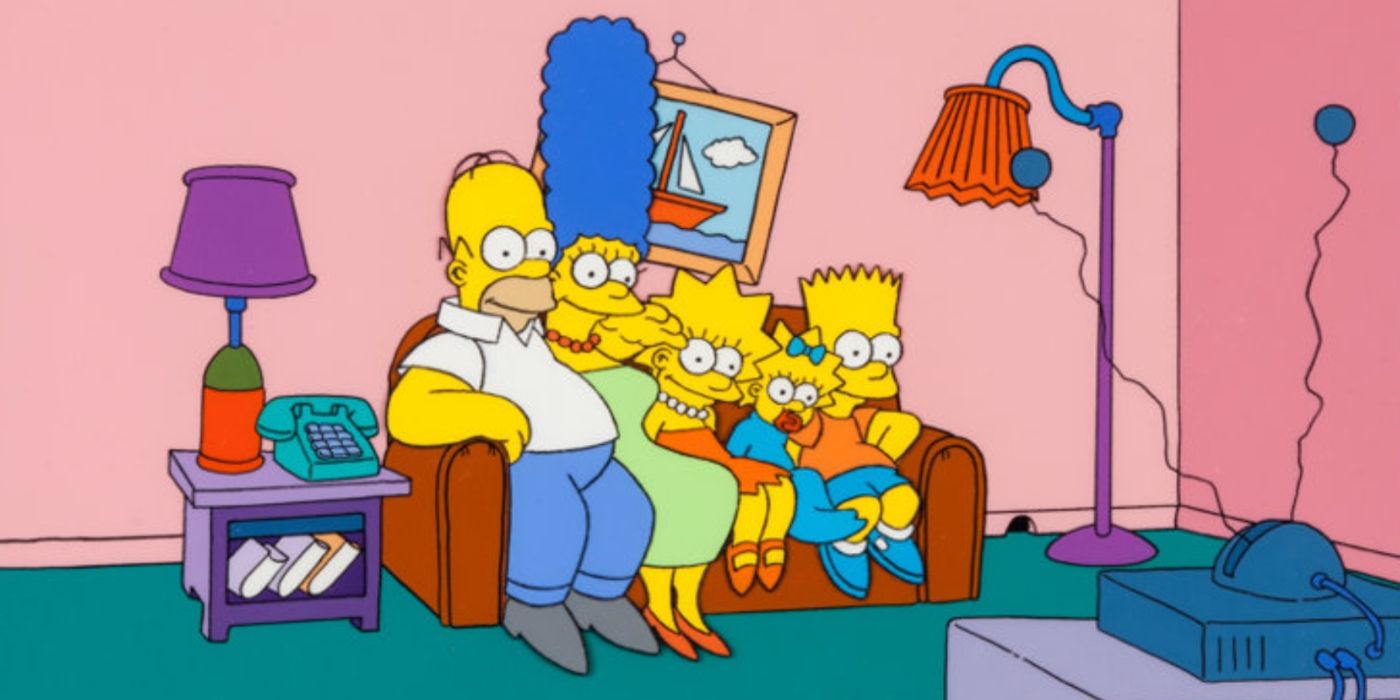Currently in its 34th season, The Simpsons has become a foundational piece of pop culture over the course of three decades. The show's success changed the comedy landscape and set the stage for the then-upstart Fox Network to rise in prominence, leaving an indelible mark on American culture. While the show has gone on to become a major piece of a generation's shared experience, it began as a bizarre underdog story that kept getting unexpected breaks at the right opportunity and benefited from some little white lies.
During an interview with CBR, Nacelle Company CEO and The Toys That Made Us creator Brian Volk-Weiss discussed the upcoming Icons Unearthed: The Simpsons, which debuts Oct. 5 on Vice TV. He detailed the biggest surprises he discovered about the show's origins, the secret to a truly great documentary interview, and what gives the animated mainstay a bigger cultural imprint than even something like Star Wars.
CBR: What's your personal history with The Simpsons? Did you grow up as a fan, or was it something you discovered later in life?
Brian Volk-Weiss: The way we choose the subjects, we only cover things we're excited about. We're very lucky that we're in a position like that. In fact, a couple of weeks ago, I got a call from a studio asking us to do a 10-episode series about a piece of IP that they own that not only am I not excited about, but I don't like it. I tried watching it many times, [and] I don't get it. I don't like it. It's not for me. It's a very big popular franchise, and I respect the fact that people love it, but it's not for me. I don't like it at all. I think if I had been neutral, we would have taken the job, but because I really don't like it, we turned it down. I mean, this was a very nice mid-seven figures budget that we turned down because I know that I can't do my job right unless I'm passionate. I found that on Toys That Made Us because that show was a lucky break that it got greenlit. I was trying to sell that show for seven years, but that was our first show ever to get a second season...
I need to be passionate about the subject in order for me to move forward. For whatever reason -- unfortunately, both of my parents are deceased, so I can't ask them -- but for whatever reason, my childhood was Fox, Fox, Fox. I mean, I was into stuff like Herman's Head, [and] the weirder stuff like The Ben Stiller Show. I was all about Fox. So because of that, I remember seeing The Tracey Ullman Show the day it premiered. I vividly remember seeing the cartoon The Simpsons interstitial. I can't even tell you that I liked it, or I loved it or whatever, but I can tell you this. I remember this like it was yesterday -- when I first heard that those weird animated interstitials were being turned into a full series, I was extremely excited.
The first season was focused on Star Wars and the creation behind-the-scenes on that film. Why was The Simpsons the right step after that?
You know, it's interesting. Let me establish a foundation to my point, which will be obvious from there. With Star Wars, yes, there's The Mandalorian, there's [The Book of Boba Fett], but Star Wars is a movie-based franchise. Obviously, The Simpsons is a television-based franchise. You see, we really unearth a lot of secrets -- I just gave you that groundbreaking scoop -- but the reason why I bring up the obvious is because The Simpsons is a television show, because it's animated, it's kind of what I would refer to as a sneaky icon versus an obvious icon.
One of the things that we try to do with the series that we'll see if we pulled it off or not, [is] I don't think people understand how big The Simpsons is. It's 2022, and they're shooting Season 34. Game of Thrones only went eight seasons. Seinfeld, one of the greatest shows of all time, only went 12 seasons. So it's just a number, but what people don't understand is because it's been on so long and because we have this thing called syndication, [and] now we have this thing called streaming... This is one of the most watched pieces of content in human history.
If you start off with cave paintings, and then you get to the Mona Lisa, and now we have shows on Disney+ and Apple [TV]+ and Netflix or whatever. Take all of that, and I think there's a very good chance that Simpsons, of all the billions and trillions of hours humanity has looked at content... If there was some way to figure out the ratio of how long [has] humanity existed, how many TV shows, movies, poems, books, paintings have been made, I guarantee you the percentage of humans that have seen Simpsons would be a staggeringly large percentage of the amount of content consumed by our entire species over time. That's what we tried to show with this series -- how big it really is.
To your point, a lot of people name their children after characters from Star Wars or characters from Lord of the Rings or Marvel movies or whatever. There's not a lot of people that name their kids after Bart or Homer or Maggie. It's a different kind of icon. I would argue it has the more obvious signs of an icon. The public has a much more intimate relationship with The Simpsons than they do with Star Wars simply because there's so much of it everywhere all the time. Not just on TV -- there's merchandise and rides in the theme parks, just like Star Wars.
Something I discussed with The Simpsons Showrunner Al Jean during a recent interview was the show's success on the Disney+ streaming service. It's one of the service's most popular things, so I do think that speaks to the kind of impact you're talking about.
Well, you know, another thing that we really tried to do with this season is -- I know that Simpsons was not the only launch show. Obviously, Married With Children did very well, and other shows [did] very well. But it is undeniable that The Simpsons' success helped fuel the rise of Fox. Rupert Murdoch would talk about it. Simpsons was a huge part of the rise of Fox. [I] don't know any numbers, but I guarantee you when the Disney accountants and the Disney lawyers were going through the Fox list of assets... Fox is a company that I would estimate conservatively owns, let's say, 2000 movies and 25,000 hours of television. I guarantee you a sizable percentage of what Disney paid to acquire Fox was for The Simpsons.
As the series delves into, there are elements of this show's origin that require an explanation of a very different pop culture. At the time, Fox was only the fourth major channel, and the show highlights the very specific circumstances that helped get the show the green light. It could only happen when it did. What's it like translating a story that is rooted in its specific time and place in pop culture for modern audiences?
So thank you for teeing up one of my favorite words and my favorite topics to talk about, and I do believe at this point in my life is my favorite word. That word is context. I have said for a long time that I feel like the most badass name for an aircraft carrier or a battleship would be the USS Context. The reason that I say that is... If you're the Venezuelan government, and you're fucking around, and all of a sudden, the USS Context shows up off the coast of Caracas, the context has changed. Venezuela may not like that context. They might not be happy about it, but it is undeniable that... the context has changed. So I have always really appreciated the importance of context.
Starting with Toys That Made Us and everything we've done, it's to establish the context of why something is what it is, or why it's important, or at the very least, why my company and I spent so much time making a show about a certain topic. The other analogy I would give you is you could be walking through the snow-covered woods, and you see the biggest bear print in the snow that you have ever seen. You're like, "Oh my god, this bear must be 10,000 pounds and 50 feet long, oh my god." You take out your phone, and you take a picture, and you post it on Instagram. If that's the picture you took of the paw print by itself in the snow, I guarantee you, you probably won't get that many likes. If you put a $1 bill next to that paw print, and people then have something that grounds that paw print to something else, that's how you establish the context of that papering. But you can't do it by itself.
What we tried to do -- and hopefully we accomplish [it] -- we really tried to show... how delicate the success was of getting a show like this from an idea in [Matt Groening's] brain to 34 seasons later. One of the things that we spend a lot of time talking about was James L. Brooks basically was redoing his deal with Fox Studios to make another round of movies. He had done, I think, a four-picture deal. He had made all four. I think two of them got Oscar-nominated, all four made boatloads of money, and they re-upped his deal. Part of re-upping his feature deal was he kind of said, "I ain't signing this unless you greenlight The Simpsons." The rumor is the people at the studio were like, "What's The Simpsons?"
I cannot begin to tell you how many things we cover that are accidental successes. Fox didn't greenlight the show because it was this genius thing they know knew would go 34 seasons. They greenlit it because they wanted James L. Brooks to make more movies for them -- and if the price was some stupid animated show that started off as a part of another show that got canceled, oh well. That's the price to doing business. Ironically, those next movies that James L. Brooks directed didn't do very well. Yet, here we are, 30-plus years later, talking about The Simpsons.
I have a well-documented love for The Simpsons, and there were still plenty of surprises about the origin of the series. This is a really comprehensive dive into the origins of the show.
That's what we pride ourselves on. I mean, we spend more time researching than we spend shooting. I mean, let that sink. In. The other thing we do is we do a lot of pre-interviewing. I consider that to be kind of our secret sauce. By the time that we're sitting down with the big fancy cameras, interviewing people, unless it's somebody like Sigourney Weaver, we have usually already interviewed him twice. The interview where we're actually recording it for the show, that's usually the third time we're interviewing somebody.
Then at the end, if we've learned more stuff during the shooting of the production period, we'll go back sometimes and interview people again. The reason for that is when we're doing the pre-interviews, the first one is not recorded. The second one is audio recorded. We basically compare and contrast everybody's stories with everybody else. We start to find things out that if we're talking about ten people, maybe only one of the people knows that story. So when we interview the other nine people, and we bring up that one story they didn't know, they might be like, "Oh, I didn't know that, but did you know this?" That's how we do it. That's how we get the scoop.
Going back and diving into the show like this, what has surprised you the most about The Simpsons the most during this production?
I learned tons. I learned huge things, and I learned small things. As usual, some of the small things are the weirdest or the most memorable things that I learned on stuff like this. Just to randomly pick some examples -- apparently, Rupert Murdoch always watched rough cuts of The Simpsons. He almost didn't watch anything else, any other show, but for whatever reason, every week, wherever he was on Earth, he was hoping and wanting and trying to get the Simpsons cut so he could watch it. You picture this guy, this mogul, and all that, and then you learn that this guy is watching The Simpsons every week.
I always knew the rumor that there was another show in contention against The Simpsons, but I didn't know anything about it. I'm talking about before the show was greenlit. So what we found out about M.K. Brown and the show that she had pitched, Dr. N!Godatu... [at the time] everybody was pretty sure her show would be the one to go on, not The Simpsons. We came very close to getting an interview with her, but at the end of the day, it basically got back to us [that] she was just still, almost 40 years later, too kind of bummed out to talk about it.
So we really... That's the other thing, in addition to context. That's the other thing that I always really try to get into when we make shows... That [people] shouldn't take any of this for granted. The fact that The Simpsons has been around for over three decades -- don't take that for granted. This could have been another show that got greenlit, and that show may have only lasted 10 episodes.
Icons Unearthed: The Simpsons premieres on Vice TV on Oct. 5.




.jpg)
